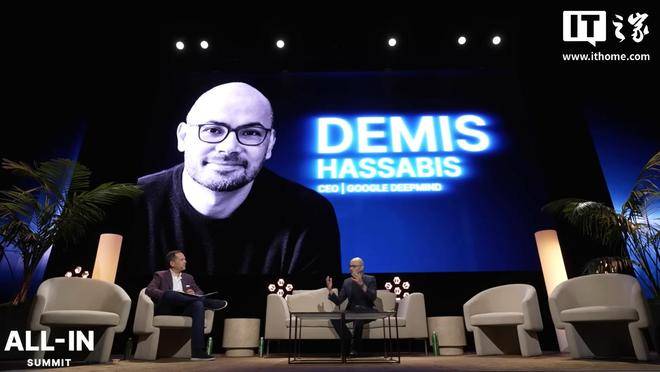Source: Market Information
(Source: IT Home)
IT Home reported on September 14 that OpenAI has claimed that GPT-5 possesses doctorate-level capabilities, but Google DeepMind seems to reject such statements.

Demis Hassabis, CEO of Google DeepMind, stated that claims by AI companies about developing systems with doctorate-level intelligence are “nonsense.” Hassabis pointed out at the “All In Summit”: “We often hear some competitors claim that the modern systems we have today possess doctorate-level intelligence. But I believe this statement is nonsense; these systems do not possess doctorate-level intelligence at all. They do achieve doctorate-level in certain capabilities, but do not have comprehensive doctorate-level abilities, and the core of general intelligence lies in the ability to demonstrate doctorate-level proficiency across various fields.”
Previously, OpenAI CEO Sam Altman claimed that GPT-5 has “doctorate-level” capabilities. At the GPT-5 launch event, he stated: “Interacting with GPT-5 is like conversing with an expert, a true doctorate-level expert in any field.” He also described GPT-5 as “the most powerful, intelligent, fastest, most reliable, and robustly reasoning model we have launched to date.”
However, Hassabis pointed out that current AI systems fall far short of doctorate-level overall abilities. He said: “In fact, it is well known that when interacting with today’s chatbots, if you ask questions in a specific way, you will find that they can even make basic mistakes in high school mathematics and simple counting problems. Such issues should not occur in a true general artificial intelligence (AGI) system. Therefore, I believe that to develop an AI system capable of achieving doctorate-level comprehensive abilities, we may still need 5 to 10 more years.”
IT Home noted that Hassabis also mentioned that current systems lack human-like learning abilities. He stated: “Another missing key capability is the ability to learn continuously—specifically, the ability to impart new knowledge to the system online or adjust its behavior patterns in some way. Currently, most of these core capabilities have not yet been realized. Perhaps through scaling up, we can achieve our goals, but if I were to bet, I believe that to achieve this goal, we may still need one or two key breakthroughs, which are expected to emerge in the next five years or so.”
Despite the strong capabilities of modern AI systems like GPT-5, Grok 4, and Gemini 2.5 Pro, which can win gold medals in math Olympiads and have programming skills superior to many humans, they still make mistakes on relatively simple tasks. This “uneven intelligence,” where they excel in certain tasks but perform poorly in others, means that they cannot currently be classified as possessing doctorate-level abilities.返回搜狐,查看更多
平台声明:该文观点仅代表作者本人,搜狐号系信息发布平台,搜狐仅提供信息存储空间服务。

